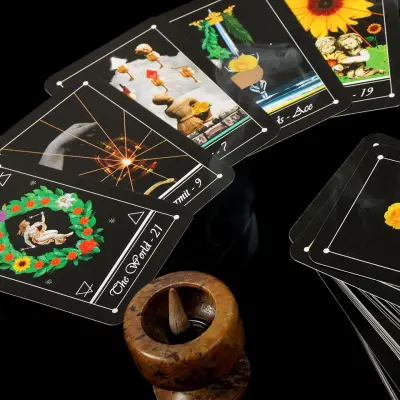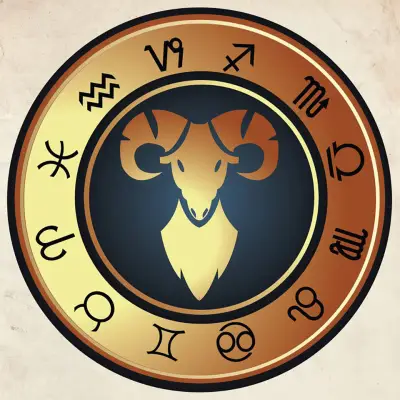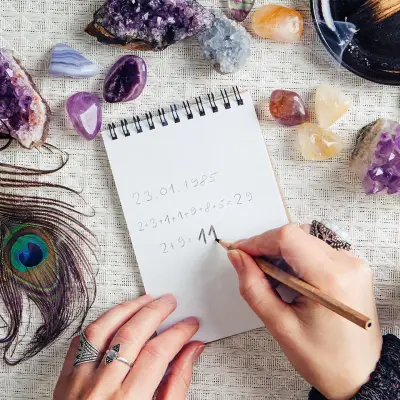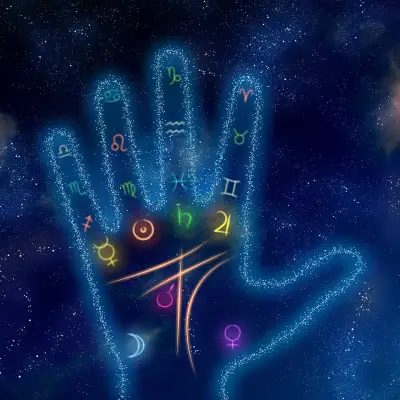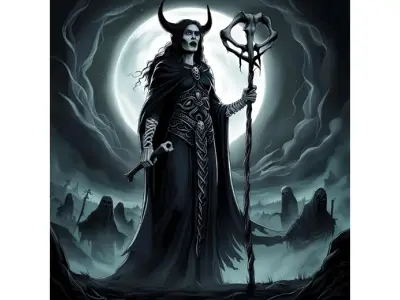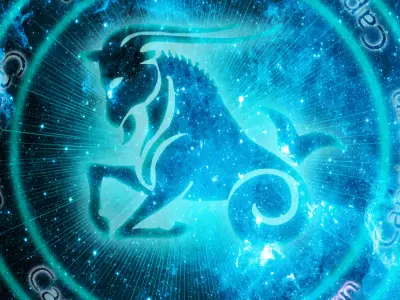Have you ever wondered what the yin and yang symbol represents or why it’s so significant in Chinese philosophy? The concept of yin and yang is ancient, yet it remains relevant in modern times. People often turn to it for insights into balance, harmony, and the interplay of opposite forces in life. This blog post explores the meaning of yin and yang, their energies, personality traits, and how these concepts influence relationships.
Jump to:
- What Does Yin and Yang Mean?
- Yin and Yang Energies
- Personality Traits of Yin and Yang
- Relationship Compatibilities
- What Zodiac Signs Are Yin?
- What Zodiac Signs Are Yang?
- The Balance of Yin and Yang in Daily Life
- The Yin-Yang Theory in Traditional Chinese Medicine
- The Symbol of Yin and Yang
- Yin-Yang in Chinese Philosophy and Culture
- Applying Yin-Yang Principles in Modern Life
- Frequently Asked Questions about Yin and Yang
- Study Chinese Mythology for £29
What Does Yin and Yang Mean?
The definition of yin and yang is rooted in the idea that all things exist as inseparable and contradictory opposites. The symbol itself, a circle divided into a swirling pattern of black and white, illustrates this beautifully. Yin is represented by the black side with a white dot, and yang is the white side with a black dot. This symbol shows how each force contains a seed of the other, signifying their interdependence.
Recommended for you!
Best SellersYin and Yang Energies
Yin energy is often described as passive, receptive, and feminine. It’s associated with qualities like coolness, darkness, and stillness. Think of the quiet, reflective moments you experience at night or the calmness you feel when you're at rest. Yin energy encourages introspection, nurturing, and healing.
Yang energy, on the other hand, is active, dynamic, and masculine. It’s linked to warmth, brightness, and movement. Consider the energy you feel during the day, when you’re active and engaged in various tasks. Yang energy drives action, ambition, and assertiveness.
Understanding the personality traits associated with yin and yang can provide valuable insights into your own character and the dynamics of your relationships. Yin and yang manifest in your behaviours, preferences, and interactions with others. Let's explore the defining characteristics of yin and yang personalities.
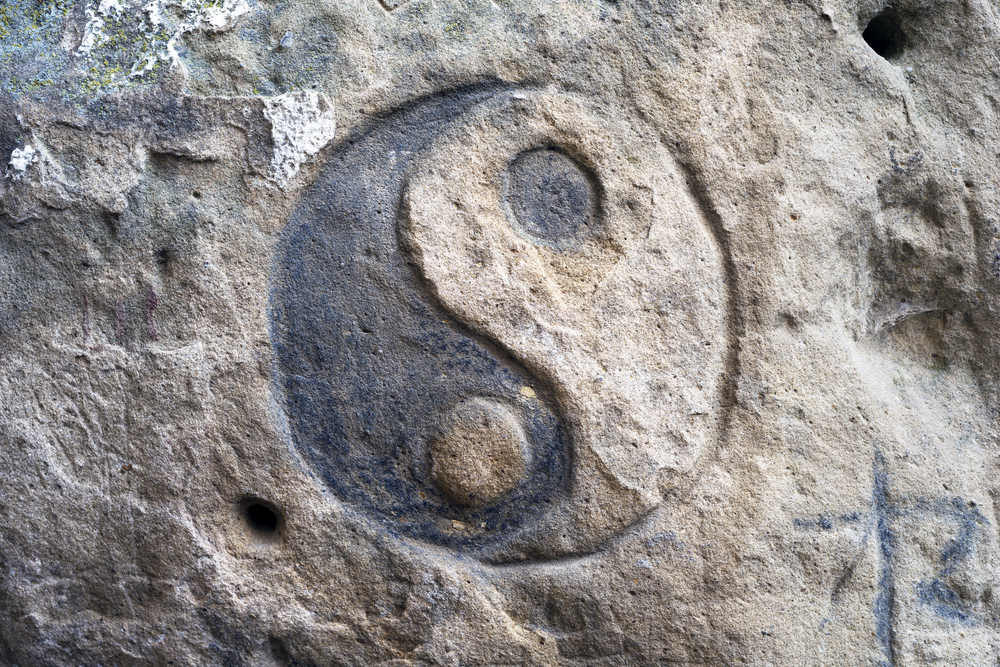
Personality Traits of Yin and Yang
Yin Personalities
People with predominant yin qualities are often seen as calm, reflective, and empathetic. These people find solace in quiet environments and activities that allow for deep contemplation, such as reading, meditation, or gentle walks in nature. Yin personalities are nurturing and often put others’ needs before their own, displaying a high level of empathy and care.
- Calm and Reflective: Yin personalities are typically introspective, enjoying moments of solitude where they can ponder life’s deeper questions. This reflective nature makes them great listeners and thoughtful friends.
- Preference for Quiet Environments: Yin individuals thrive in peaceful settings, away from the hustle and bustle. They might prefer a cosy evening at home over a loud party, finding joy in simple, tranquil moments.
- Nurturing and Empathetic: Their nurturing side means they are often the caregivers in relationships, offering support and understanding to those around them. This empathy allows them to connect deeply with others, valuing meaningful, intimate connections.
- Introverted Tendencies: Yin personalities tend to be more introverted, drawing energy from within rather than from external stimuli. This introspection allows them to be in tune with their own and others’ emotions, creating a balanced and grounded presence.
Yang Personalities
Yang personalities are typically energetic, outgoing, and confident. These people thrive in stimulating environments and are drawn to activities that involve movement and excitement, such as sports, travelling, or social gatherings. Individuals with strong yang traits are often seen as leaders, pushing forward with determination and enthusiasm.
- Energetic and Outgoing: Yang individuals are often the life of the party, bringing energy and excitement wherever they go. Their enthusiasm is infectious, making them great motivators and leaders.
- Thrives in Stimulating Environments: Yang personalities enjoy dynamic settings with lots of action and interaction. Whether it’s a bustling city, a lively event, or an adventure trip, they feel at home in busy atmospheres.
- Confident and Assertive: Confidence is a hallmark of yang personalities. They are not afraid to take charge and assert their opinions, often leading initiatives and driving progress in various aspects of life.
- Extroverted and Sociable: Extroversion defines yang personalities, who gain energy from social interactions and external activities. They enjoy meeting new people, exploring new places, and constantly seek new experiences.
Relationship Compatibilities
Exploring how yin and yang personalities interact in relationships can reveal much about potential compatibility and harmony. The interplay of these energies can lead to balanced and fulfilling relationships, but understanding the dynamics is key.
Yin and Yang Relationships
In relationships, yin and yang can complement each other beautifully. The yin partner’s calm and nurturing nature can balance the yang partner’s energetic and assertive traits. This dynamic can create a harmonious and fulfilling partnership, where each person’s strengths support the other’s weaknesses.
Two Yin Personalities
When two yin personalities come together, their relationship is likely to be peaceful and nurturing. They may enjoy quiet, intimate moments and have a deep emotional connection. However, they might need to be mindful of becoming too passive and ensure that they still take initiative in their lives and relationships.
Two Yang Personalities
A relationship between two yang personalities can be vibrant and dynamic. They will likely share a passion for adventure and a fast-paced lifestyle. However, due to their strong-willed natures, they might need to be cautious of potential clashes. Learning to compromise and respect each other’s viewpoints will be key to maintaining harmony.
What Zodiac Signs Are Yin?
In Chinese astrology, the yin zodiac signs are the Ox, Rabbit, Snake, Goat, Rooster, and Pig. These signs are known for their calm, introspective, and nurturing qualities. They often exhibit traits such as patience, sensitivity, and a strong sense of empathy. People born under these signs tend to prefer peaceful environments and value deep, meaningful connections with others. Their yin nature reflects an affinity for harmony and balance, making them thoughtful and supportive companions.
What Zodiac Signs Are Yang?
The yang zodiac signs in Chinese astrology are the Rat, Tiger, Dragon, Horse, Monkey, and Dog. These signs are characterised by their energetic, dynamic, and assertive qualities. People born under these signs are often outgoing, ambitious, and thrive in stimulating environments. They are natural leaders who enjoy taking initiative and embracing new challenges. Their yang nature embodies qualities of strength, enthusiasm, and a forward-moving drive, making them inspiring and motivating in both personal and professional spheres.
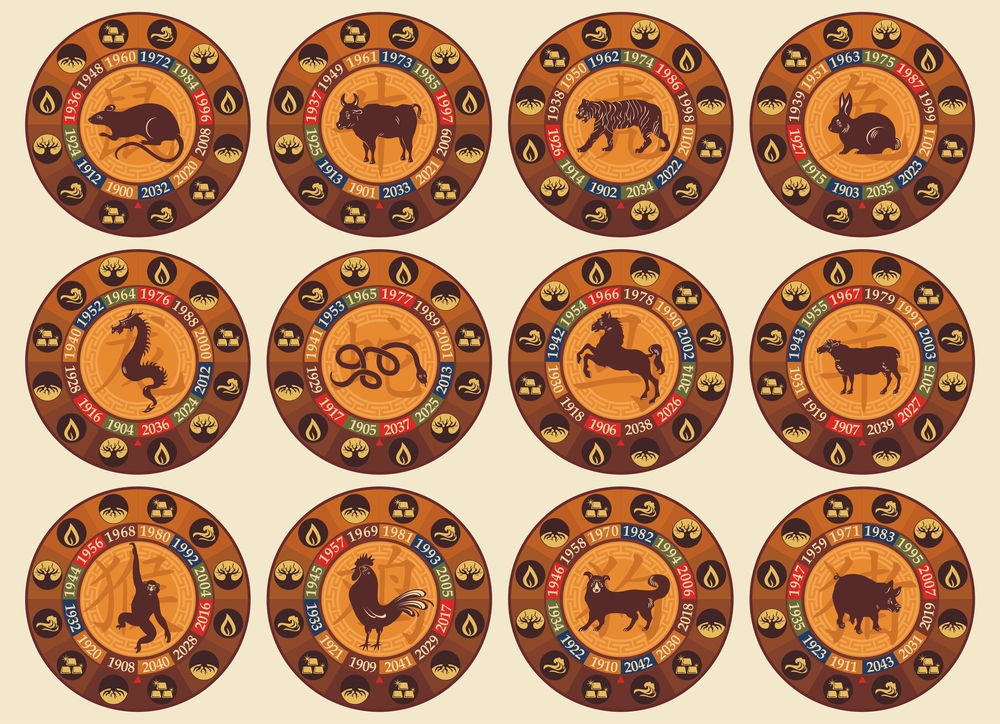
The Balance of Yin and Yang in Daily Life
Balancing yin and yang energies is essential for overall well-being. If you find yourself feeling overly tired and introspective (too much yin), it might be beneficial to engage in activities that stimulate your yang energy, like exercise or socialising. Conversely, if you’re feeling overly stressed and restless (too much yang), you might need to incorporate more yin activities, such as meditation or spending time in nature, to restore balance.
The Yin-Yang Theory in Traditional Chinese Medicine
In traditional Chinese medicine, the yin-yang theory plays a key role in understanding health and illness. The balance between yin and yang energies within the body is believed to influence physical and mental health. For instance, an excess of yang energy might manifest as fever, irritability, or inflammation, while an excess of yin energy could result in fatigue, coldness, or depression.
Practices like acupuncture, herbal medicine, and tai chi aim to restore the balance of yin and yang in the body, promoting overall health and well-being.
The Symbol of Yin and Yang
The yin-yang symbol, also known as the Taijitu, is a powerful representation of balance and harmony. Its design reflects the continuous flow and transformation of energy, where yin and yang are in a constant dance, each giving rise to the other. This symbol reminds us that life is a blend of opposites, and finding balance is key to achieving harmony.
Yin-Yang in Chinese Philosophy and Culture
The concept of yin and yang extends beyond personal traits and health; it’s a fundamental principle in Chinese philosophy and culture. It influences various aspects of life, from art and architecture to governance and social relationships. Understanding yin and yang can provide a deeper appreciation of Chinese cultural practices and their emphasis on balance and harmony.
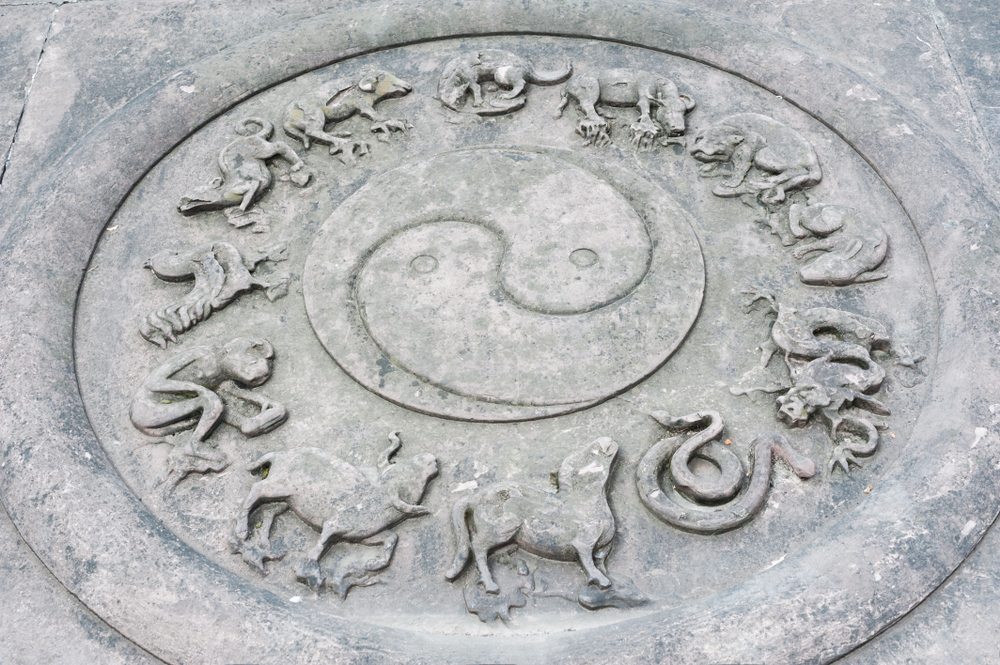
Applying Yin-Yang Principles in Modern Life
You don’t need to be a scholar of Chinese philosophy to apply yin-yang principles in your life. Here are some practical tips:
- Identify Imbalances: Reflect on areas of your life where you might have an imbalance of yin or yang energy. Are you feeling overwhelmed (too much yang) or stuck in a rut (too much yin)?
- Incorporate Opposite Energies: If you’re experiencing too much yang energy, try incorporating more yin activities like yoga, reading, or spending quiet time alone. If you’re feeling too yin, engage in more yang activities like exercising, socialising, or tackling a new project.
- Create a Harmonious Environment: Your surroundings can influence your energy balance. Create spaces that reflect both yin and yang qualities. For example, have a cosy, quiet corner for relaxation (yin) and a bright, vibrant area for activities (yang).
Frequently Asked Questions about Yin and Yang
Is yin positive or negative?
Neither yin nor yang is inherently positive or negative. They represent different types of energies and qualities that complement each other. Yin is not "bad" because it’s dark or passive, just as yang is not "good" simply because it’s bright or active. What's important is the balance between the two.
Is yin white or black?
In the yin-yang symbol, yin is represented by the black side with a white dot, signifying its presence within yang. Yang is the white side with a black dot, indicating that yin is present within yang.
Which is good, yin or yang?
Neither yin nor yang is considered better than the other. Both are essential and complementary. The goal is to achieve a balance between the two, as both energies are necessary for harmony and well-being.
How do I know if I am yin or yang?
You can determine whether you lean more towards yin or yang by reflecting on your personality traits and preferences. If you are more introspective, calm, and enjoy quiet activities, you might have a predominance of yin energy. If you are energetic, outgoing, and enjoy dynamic activities, you might have more yang energy. Remember, everyone has a mix of both, and it’s about finding a balance.
What is a yang personality?
A yang personality is characterised by traits such as high energy, confidence, and assertiveness. People with a yang personality tend to be outgoing, ambitious, and enjoy engaging in activities that involve movement and excitement.
Is yin female or male?
Yin is traditionally associated with feminine qualities, while yang is linked to masculine traits. However, these associations are symbolic and do not strictly pertain to gender. Everyone has both yin and yang energies regardless of their gender.
Are yin and yang lovers?
Yin and yang can indeed describe dynamics in romantic relationships. Partners who embody these energies can complement each other well. For instance, a yin person’s nurturing nature can balance a yang person’s assertiveness, creating a harmonious relationship.
What is a yin person like?
A yin person is typically calm, reflective, and empathetic. They may prefer quiet, solitary activities and value deep emotional connections. They are often seen as nurturing and caring, prioritising the well-being of others.
Can two yins be together?
Two yin personalities can be together and have a peaceful, nurturing relationship. They may enjoy a quiet and intimate connection but should be mindful of maintaining a balance by incorporating more yang activities to ensure they stay active and engaged.
What does it mean to be someone's yin?
To be someone’s yin means to complement their yang energy. In a relationship, this might mean providing a calming, supportive presence to balance their partner’s more active and assertive traits. It’s about creating a harmonious dynamic where both energies support and enhance each other.
Why is yin feminine?
Yin is considered feminine because it embodies qualities traditionally associated with femininity, such as passivity, receptivity, and nurturing. These symbolic associations help explain the balance and relationship between yin and yang energies.
Why is yin weak?
Yin is not inherently weak; it is simply a different type of energy. While yang is active and forceful, yin is passive and gentle. Both are necessary and powerful in their own ways, and together they create balance.
How do yin and yang work together?
Yin and yang work together by balancing each other out. When one energy becomes too dominant, the other rises to restore equilibrium. This interplay ensures that neither energy is ever completely dominant, maintaining harmony in the universe and within ourselves.
What animal is yang energy?
In Chinese astrology, yang energy is associated with animals like the Dragon, Tiger, Horse, and Dog. These animals embody yang traits such as strength, activity, and assertiveness.
How do I increase yang energy?
To increase yang energy, engage in activities that are active and stimulating. Physical exercise, spending time in the sun, setting and achieving goals, and socialising can help boost yang energy. Incorporating these practices can help balance excessive yin energy and promote a more dynamic and assertive approach to life.
Recommended for you!
Best SellersStudy Chinese Mythology for £29
If you’re intrigued by the rich world of Chinese philosophy and mythology, why not delve deeper with our Chinese Mythology Diploma Course at Centre of Excellence? For a limited time, you can access this fascinating course at a discounted price of £29.









